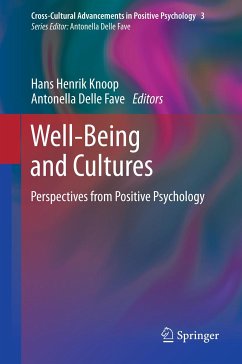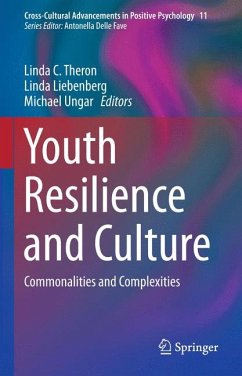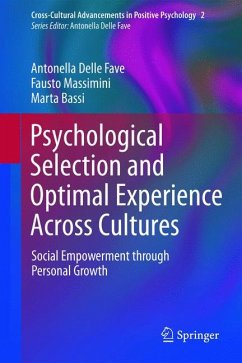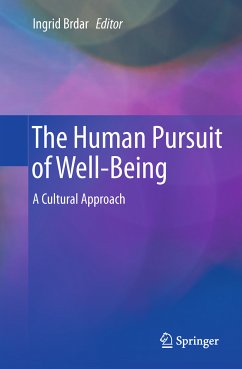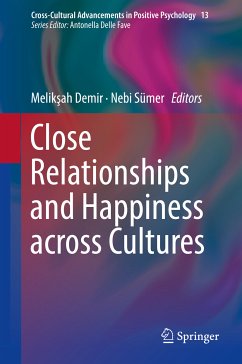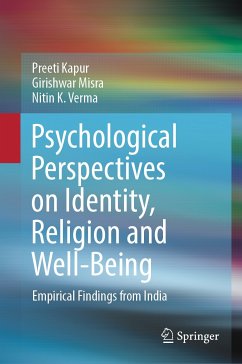
Religion and Spirituality Across Cultures (eBook, PDF)
Versandkostenfrei!
Sofort per Download lieferbar
72,95 €
inkl. MwSt.
Weitere Ausgaben:

PAYBACK Punkte
36 °P sammeln!
This book presents an integrated review and critical analysis of the recent research in the positive psychology of religion, with focus on the positive psychology of religion across different cultures and religions. The book provides a review of the literature on different contributions of religion and spirituality to positive functioning and well-being and reviews religions across the world, including Christianity, Islam, Buddhism, Judaism, Sikhism, Native American religions, and Hinduism.It fills a unique place in the market's increasing interest and demand in the psychology of religion, as ...
This book presents an integrated review and critical analysis of the recent research in the positive psychology of religion, with focus on the positive psychology of religion across different cultures and religions. The book provides a review of the literature on different contributions of religion and spirituality to positive functioning and well-being and reviews religions across the world, including Christianity, Islam, Buddhism, Judaism, Sikhism, Native American religions, and Hinduism.
It fills a unique place in the market's increasing interest and demand in the psychology of religion, as well as positive psychology. While the target audience is researchers, scholars, and students in psychology, cross-cultural studies, religious studies, and social sciences, it will be useful for anyone interested in better understanding the contributions of religion and culture in subjective well-being.
It fills a unique place in the market's increasing interest and demand in the psychology of religion, as well as positive psychology. While the target audience is researchers, scholars, and students in psychology, cross-cultural studies, religious studies, and social sciences, it will be useful for anyone interested in better understanding the contributions of religion and culture in subjective well-being.
Dieser Download kann aus rechtlichen Gründen nur mit Rechnungsadresse in A, B, BG, CY, CZ, D, DK, EW, E, FIN, F, GR, HR, H, IRL, I, LT, L, LR, M, NL, PL, P, R, S, SLO, SK ausgeliefert werden.




